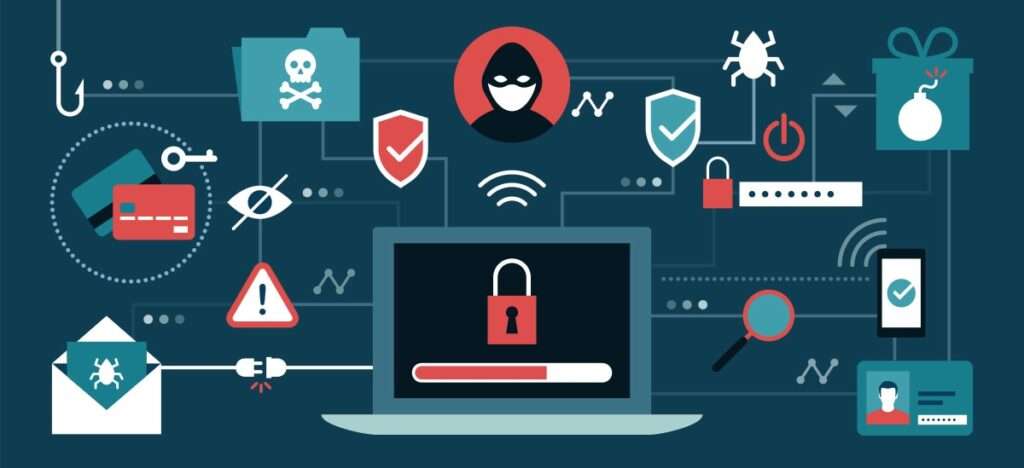Online scams are deceptive schemes aim to steal your money, personal information, or both. Whether disguised as enticing investment opportunities, phishing emails, or fake social media profiles, online scams can be sophisticated and difficult to detect. By understanding the tactics online scammers employ and familiarizing yourself with red flags, you can significantly reduce your risk of falling victim.
Common Tactics of Online Scammers
Scammers exploit a variety of tactics to lure unsuspecting individuals into their schemes. Here are some of the most common ones to watch out for:
- Urgency and Scarcity: Scammers often create a sense of urgency or limited availability to pressure you into making a quick decision before you have time to think. They might offer deals that are “too good to be true” or claim limited spots in a supposedly exclusive opportunity.
- Emotional Manipulation: Scammers prey on emotions like fear, greed, or sympathy. They might use scare tactics, promising to resolve a nonexistent problem, or dangle the promise of quick riches. Keep an eye out for sob stories or overly emotional appeals.
- Impersonation: Scammers frequently impersonate legitimate entities, such as banks, government agencies, or well-known companies. They might use spoofed phone numbers, create fake websites that mimic real ones, or send emails with logos of trusted institutions.
- Fake Reviews and Testimonials: Scammers often fabricate positive reviews and testimonials to make their schemes appear credible. Be skeptical of glowing endorsements that seem too good to be true, especially if they lack specifics.
- Phishing Emails and Texts: Phishing scams involve emails or text messages designed to trick you into revealing personal information or clicking on malicious links. These messages may appear to come from a trusted source, such as your bank or credit card company.

Red Flags That Should Raise Your Alarm
While scammers constantly refine their techniques, certain red flags consistently indicate a scam. Here’s what to look out for:
- Unrealistic Promises: If something sounds too good to be true, it probably is. Be wary of investment opportunities promising exorbitant returns or schemes that guarantee effortless wealth creation.
- Poor Grammar and Spelling: Legitimate companies typically have professional communication standards. Emails or websites riddled with grammatical errors and typos are strong indicators of a scam.
- High-Pressure Sales Tactics: Legitimate businesses don’t pressure you into making a purchase immediately. Scammers, however, will try to rush you into a decision before you have a chance to scrutinize the offer.
- Unusual Payment Methods: Be careful of requests to pay with unconventional methods, such as gift cards, prepaid debit cards, or cryptocurrency. Legitimate businesses offer secure and established payment options.
- Requests for Personal Information: Legitimate businesses rarely request sensitive information via email or text message. Be cautious of unsolicited requests for your Social Security number, bank account details, or passwords.
Tracking Scammers: Can You Fight Back?
While recovering funds lost to a scam can be challenging, there are steps you can take to track the scammer and recoup your losses. Here’s what you can do:
- Gather Evidence: Collect all communication with the scammer, including emails, text messages, and website screenshots. This documentation will be crucial if you decide to report the scam or pursue legal action.
- Report the Scam: Report the scam to the appropriate authorities. Reporting helps track scammers and prevent others from falling victim.
- Dispute Charges: If you paid the scammer with a credit card or debit card, contact your bank immediately and report the fraudulent transaction. You may be able to dispute the charge and recover your funds.
- Consider Legal Action: Depending on the amount of money lost and the complexity of the scam, you might consider pursuing legal action against the scammer.
Recovering Lost Funds: When to Consider Professional Help
While some scams involve relatively small sums, others can result in financial losses. In such cases, enlisting professional help from a reputable company specializing in recovering funds lost to online scams might be advisable.
Cronus Tech: Recovering Lost Funds From Online Scams
Cronus Tech is a well-established company with a proven track record of assisting people in recovering funds lost to online scams. Their team of financial experts and investigators understand the complex world of online fraud and employ effective strategies to track down scammers and pursue avenues for recovering your lost assets.
Remember, an ounce of prevention is worth a pound of cure. By familiarizing yourself with common scams, recognizing red flags, and exercising caution online, you can significantly reduce your risk of falling victim. However, if you do become a target, remember you’re not alone. By taking action, reporting the scam, and enlisting professional help from a company like Cronus Tech, you can increase your chances of recovering your losses and holding the scammers accountable.
Here are some additional steps you can take to bolster your online security and minimize the risk of future scams:
- Strong Passwords and Multi-Factor Authentication: Use strong, unique passwords for all your online accounts and enable multi-factor authentication whenever possible. This adds an extra layer of security to prevent unauthorized access.
- Unfamiliar Links and Attachments: Don’t click on links or open attachments in emails or text messages from unknown senders. Even if they appear to come from a familiar source, exercise caution and verify the sender’s legitimacy before clicking.
- Social Media Scrutiny: Be mindful of what information you share on social media platforms. Scammers can exploit personal details to target you with personalized scams.
- Software Updates: Regularly update your operating system, web browser, and security software to ensure you have the latest security patches and protection against emerging threats.
- Anti-Virus and Anti-Malware Software: Invest in reputable anti-virus and anti-malware software and keep it updated. This software can help detect and prevent malicious programs that can steal your information or compromise your device.
The more you understand the tactics of online scammers, the better equipped you are to protect yourself and your finances. Don’t let fear deter you from participating in the vast opportunities the internet offers.




One comment
I was conned into investing $180,000 in a high-return trading platform. Cronus Tech’s intervention was vital in tracing and recovering $140,000 of my funds. Their professionalism and persistence were key to this success.
Comments are closed.